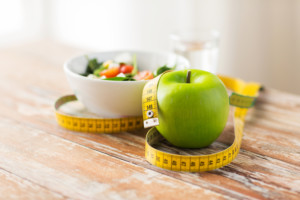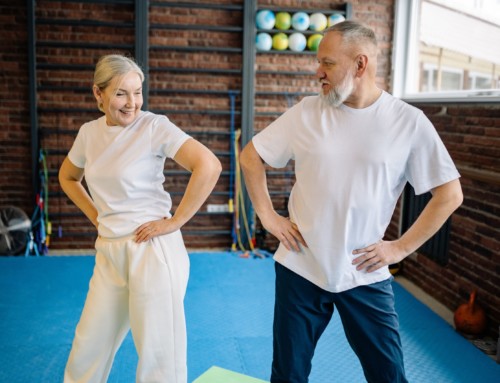 Few subjects are so hotly debated or so full of conflicting information than weight loss. Nevertheless, one thing we’ve always been able to count on is that under-exercising or consuming excess calories will lead to weight gain, while a calorie deficit from over-exercising or reducing food intake will lead to weight loss. But it turns out that diet and exercise may not have an equal impact on weight.
Few subjects are so hotly debated or so full of conflicting information than weight loss. Nevertheless, one thing we’ve always been able to count on is that under-exercising or consuming excess calories will lead to weight gain, while a calorie deficit from over-exercising or reducing food intake will lead to weight loss. But it turns out that diet and exercise may not have an equal impact on weight.
A 2011 meta-analysis compared physical activity and fat mass in children and found a surprisingly tenuous link between them. This conclusion is supported by the fact that, although physical exercise in Americans increased between 2001 and 2011, so did obesity rates.
While not denying the importance of exercise for health, another study on adults found “little evidence of the more physically active members of a population gaining less excess weight than those who are the least physically active.” So is diet more significant than exercise if you want to lose weight?
Keeping Calories in Check
It all comes down to calories burned versus calories consumed.
To lose one pound of body fat, a person must create a 3,500 calorie deficit in a week. Even if you work out every single day, if you’re still eating more than you’re burning, you’ll put on weight. Creating a deficit through exercise alone is monstrously difficult, particularly since people often overestimate how many calories they’ve burned, and overeat to compensate for the physical activity they did. Intense cardio can also leave people hungry for more food than the calories they’ve burned warrant.
Jogging or swimming for half an hour might burn off 350 calories, for instance, but few people are willing or able to do that every day of the week. Conversely, cutting out two 16-ounce sodas each day would have the same effect, and requires far less effort. That’s not to say that exercise won’t improve your health, fitness, or overall well-being, but rather that you can’t outrun poor nutrition. So how can you alter your diet to lose weight?
Small Changes Lead to Lasting Results
Big changes don’t happen overnight, and people often fail to maintain their dietary goals because they’ve made them unrealistic, wanting to see the most results in the shortest amount of time. But it’s slow and steady that wins the race.
Rather than making drastic changes that will leave you feeling stressed and frustrated, try making one small change each week. Each time you become accustomed to your new habit, you’ll feel a sense of accomplishment that will propel you forward into the next small change, and the next, until you’ve built a series of healthy habits — a new lifestyle, in fact — that you can sustain for a lifetime.
Here are two tips to make small changes with big results.
1. Focus on What to Add Rather Than What to Avoid
What we resist, persists, and when we tell ourselves we can’t eat something, we want it even more. Rather than telling yourself “I’m not allowed to eat ice cream,” focus instead on what you’d like to include more of in your diet, and ways to make those new items enjoyable. You might just find there’s no room left for that nightly bowl of ice cream — after all, we can only eat so much in a day.
If, for example, you want to eat more fruit, you might have that for dessert before deciding whether you have room for something sweeter. If you want to eat more protein at each meal, your portion of carbohydrates (particularly refined ones) might have to shrink. And if you want to eat more vegetables, a good place to start might be swapping your sugary breakfast cereal or pancakes for a healthy alternative, or even by simply replacing mayo on your sandwiches with avocado.
2. Determine Your Non-Negotiables
While losing weight will admittedly require some sacrifices, small indulgences must be allowed too, otherwise you’ll wind up feeling deprived and depleted of will power — a feeling we can only tolerate so long before we find ourselves giving up entirely.
When setting your goals for healthy eating, it’s important to determine what you can’t live without. For some, it might be real cream in their morning coffee. For others, it might be a piece of dark chocolate after dinner, or butter on their toast. Whatever it is for you, honor your choice to enjoy it guilt-free, since stressing about the extra few calories could do more harm than the calories themselves.
Moderation Is Key
When it comes to weight loss, it all boils down to creating a sustainable lifestyle. Punishing ourselves with hours at the gym will benefit us no more than starving ourselves, and both will do plenty of harm.
If experts in both fitness and nutrition can agree on one thing, it’s that a combination of sensible dietary choices and regular exercise will lead to gradual, healthy weight loss. And the data shows that, between the two, you may just want to start in the kitchen.
Contact Tri-City Medical Center today for more advice on the ideal health and fitness regime for you this year.





